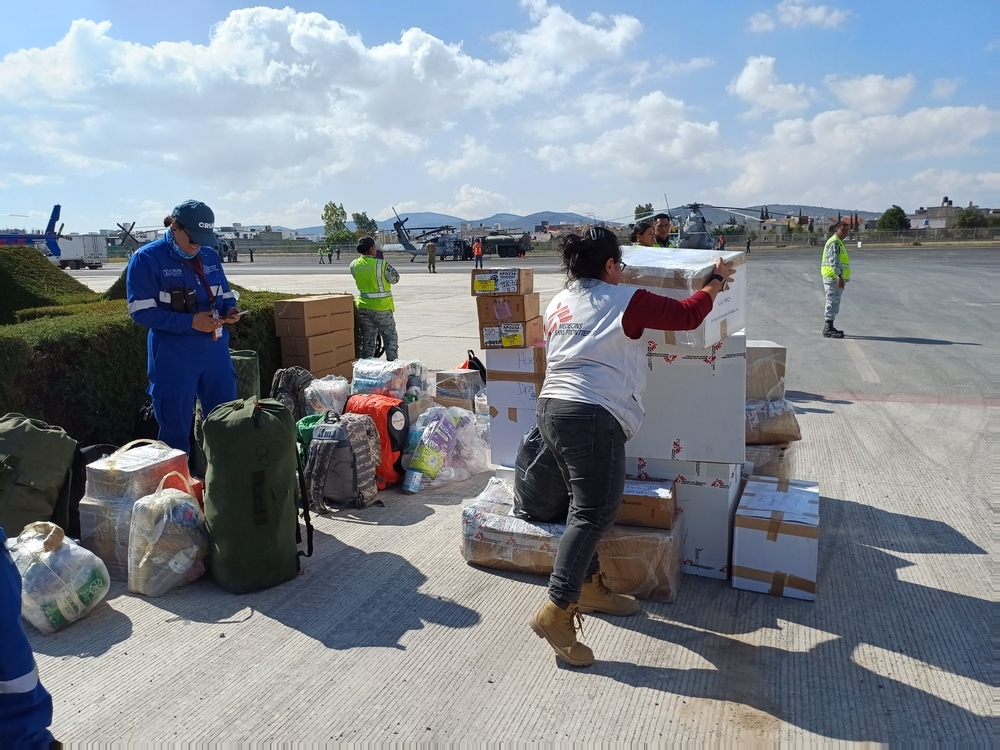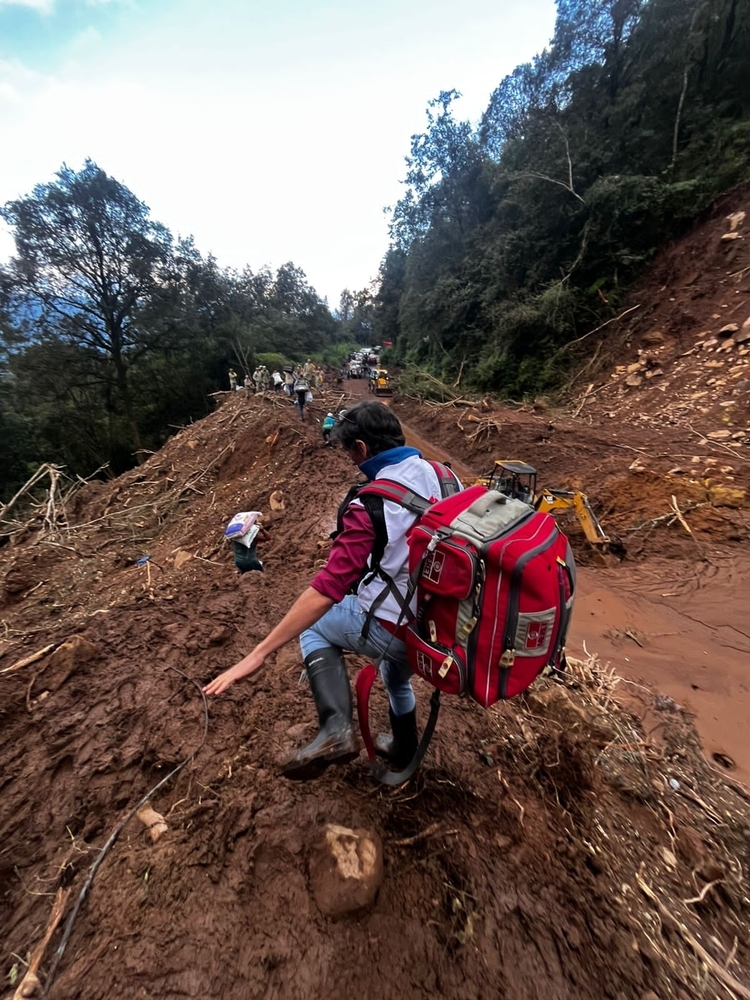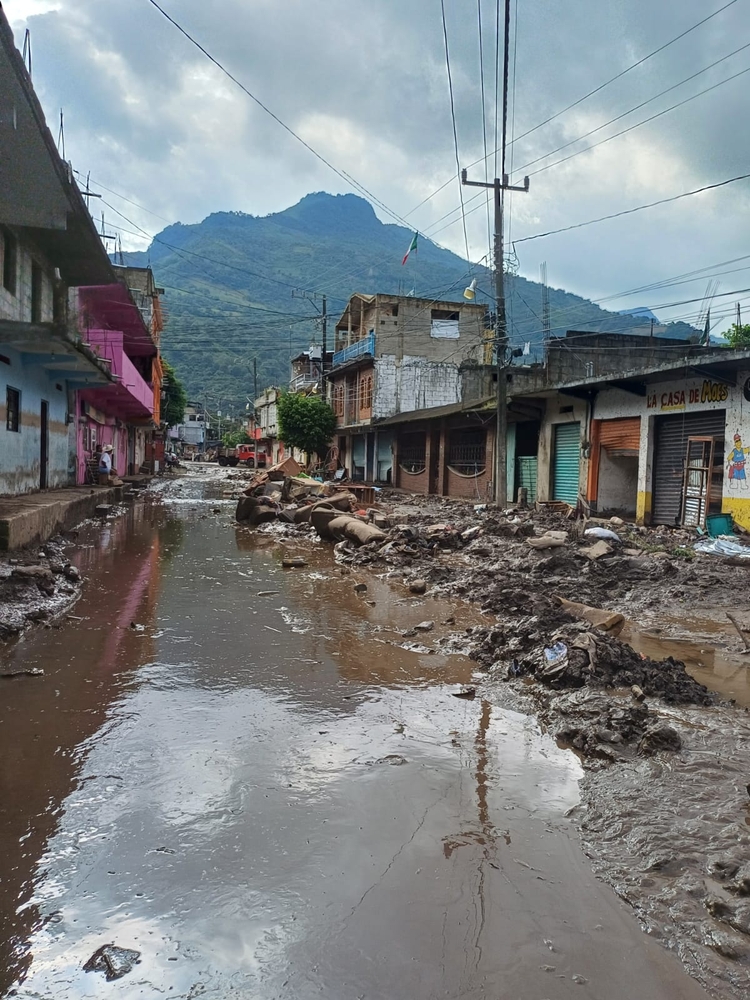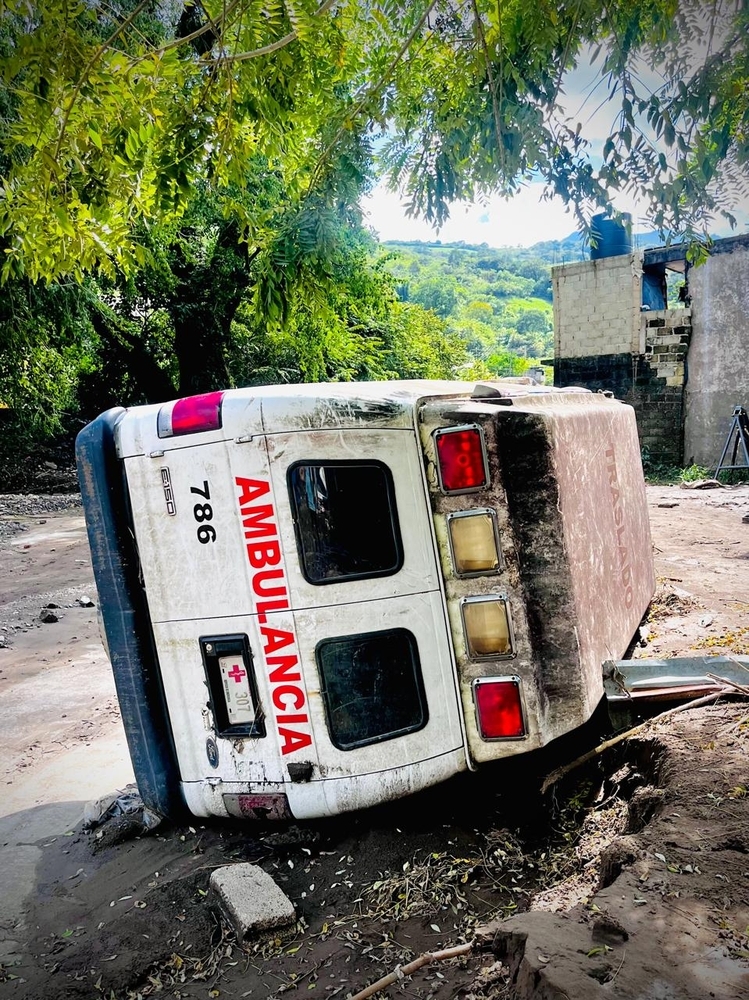Weather conditions and road interruptions have hindered the delivery of medical and humanitarian supplies, limiting the population’s access to basic health services.
Following the severe impact caused by the floods in the state of Hidalgo, Mexico, Doctors Without Borders (MSF) has deployed two teams since Monday, October 13: one in the municipality of Huehuetla, and another at the Health Hangar of the Ingeniero Juan Guillermo Villasana National Airport in Pachuca—one of four centers designated to receive donations and essential goods for affected populations.
During the first week of the emergency, our teams carried out needs assessments in coordination with the local humanitarian response mechanism, as well as the first medical consultations.

Over the weekend, an air expedition was attempted to deliver medicines, medical equipment, and hygiene supplies. However, the operation was postponed on Saturday, October 18, due to heavy fog and rain, which prevented the aircraft from landing.
Ground access to the municipalities of Tenango, San Bartolo Tutotepec, and Huehuetla remains severely affected. Huehuetla, the most remote area in the highlands, faces the greatest logistical challenges: access to basic supplies, supply lines, and healthcare is severely limited, leaving the area isolated from neighboring communities. The MSF team is already providing medical and mental health care, distributing medical supplies in the most affected areas, and continuing to document the population’s conditions and the development of the emergency.



MSF’s intervention will focus on communities outside municipal centers, where most of the aid is currently concentrated. Some populations, although not directly affected by landslides, remain at risk due to road blockages, collapsed access routes, and the lack of electricity and connectivity.
The heavy rains of October 9 and 10 caused floods and landslides that disrupted essential services such as healthcare, electricity, transport, and communications. In Huehuetla, the main health center is operating with difficulty, while rural health posts face serious limitations. The breakdown of the cold chain has compromised the storage of medicines and vaccines, and the presence of stagnant water, organic waste, and unsanitary conditions increases the risk of epidemic outbreaks.












